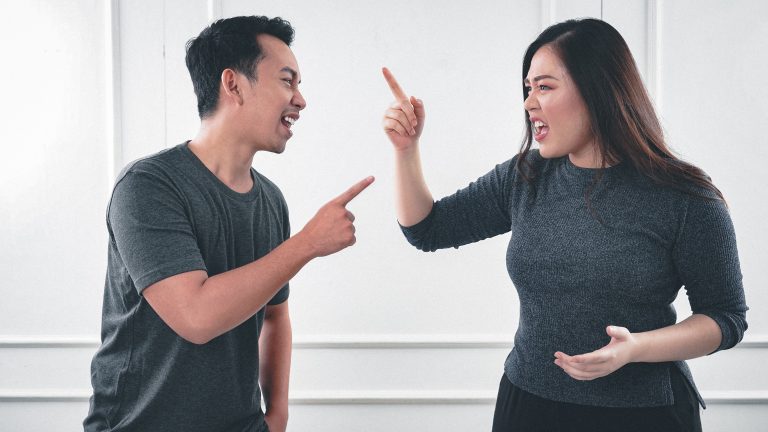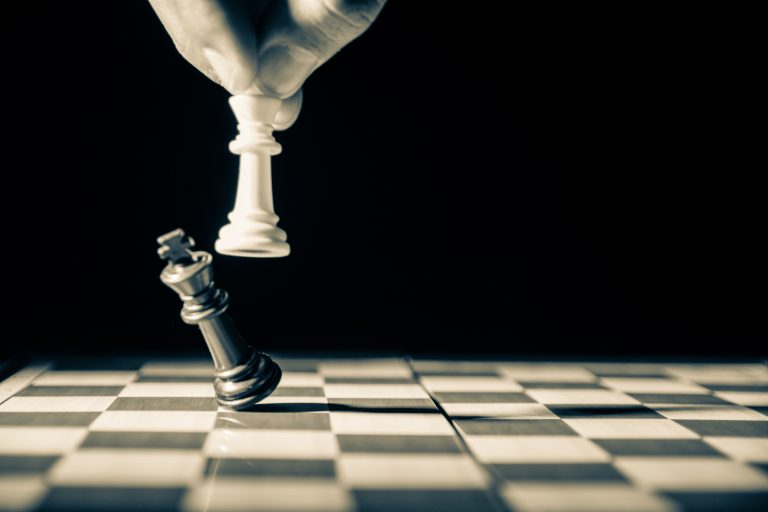Karate Hindi Meaning in English – Understanding the Martial Art
Karate is a Japanese martial art that has gained immense popularity around the world. Its Hindi meaning is often sought by people who are interested in learning more about it. In this blog post, we will explore the meaning of karate in Hindi and English, as well as delve deeper into the history and techniques of this martial art.
What is Karate?
Karate is a form of martial arts that originated in the Ryukyu Kingdom, which is now Okinawa, Japan. The word „karate“ comes from the Japanese words „kara“ meaning „empty“ and „te“ meaning „hand“. Thus, karate translates to „empty hand“, meaning, the practitioners of this martial art use their hands and feet as their only weapons.
Karate is more than just a physical exercise or self-defense technique – it is a way of life. In addition to the physical training, it emphasizes mental discipline, emotional control, humility, and respect.
The History of Karate
The history of karate can be traced back to the 1300s. During this time, Okinawa had a ban on weapons, forcing people to develop unarmed self-defense techniques. Over time, these techniques evolved into a system of martial arts, which is now known as karate.
Karate was introduced to the Japanese mainland in the early 20th century, and it quickly gained popularity. In 1933, the first karate competition was held in Japan, and it was recognized as a sport in 1957.
Today, karate is practiced all over the world, and there are several different styles, including Shotokan, Wado-Ryu, Goju-Ryu, and Shito-Ryu.
Techniques and Training in Karate
Karate involves a wide range of techniques, including punches, kicks, blocks, strikes, joint locks, and throws. These techniques are designed to be efficient and effective, and they can be used in a variety of situations, including self-defense and competition.
Training in karate involves a combination of physical and mental exercises. Physical training includes basic techniques, katas (pre-arranged forms), sparring, and conditioning exercises. Mental training involves developing focus, concentration, and calmness while maintaining proper etiquette and respect for others.
Karate Hindi Meaning in English
The Hindi meaning of karate is कराटे (karate), which is the same as its Japanese pronunciation. In English, it is spelled the same and pronounced as „kah-rah-tay“.
Benefits of Karate
Karate offers several benefits, including physical fitness, self-defense skills, self-discipline, and self-confidence. Regular practice of karate can improve strength, flexibility, coordination, and reflexes. It can also enhance mental and emotional well-being, as it requires focus, discipline, and control.
In addition, karate can be a great way to meet new people, socialize, and develop friendships. Many karate schools provide a supportive and welcoming atmosphere, making it an ideal activity for people of all ages and backgrounds.
Karate Hindi Meaning in English
Answering the Most Frequently Asked Questions
Karate is a highly structured form of martial art that originated in Okinawa, Japan. The word „Karate“ is a combination of two Japanese words, „kara“ meaning empty, and „te“ meaning hand, thus leading to the meaning of „empty hand.“ Karate is a widely popular martial art style that has spread to different parts of the world, including India. Many people who are interested in this form of martial art might be wondering what karate means in Hindi and English languages. In this post, we will answer some of the most frequently asked questions about karate, its meaning in Hindi, and English.
What is the Hindi meaning of Karate?
Karate is not an Indian word, and therefore it doesn’t have a particular meaning in the Hindi language. However, the Hindi translation of karate will be कराटे (Karate), which is how the word is pronounced in Hindi.
What is the English meaning of Karate?
As mentioned earlier, the word karate is made up of two Japanese words: „kara“ and „te,“ which mean „empty“ and „hand,“ respectively. When combined, they form the word „Karate,“ which translates to „empty hand“ in English.
What are the different styles of Karate?
Karate has numerous styles or systems that differ in techniques, training methods, and philosophy. Some of the most prominent karate styles include Shotokan, Goju-ryu, Shito-ryu, Wado-ryu, and Kyokushin.
What are the benefits of learning Karate?
Besides being an effective self-defense system, Karate has numerous physical and mental benefits. The practice of Karate improves flexibility, balance, and coordination. It also enhances cardiovascular health, strength, and endurance. Karate also helps to develop mental discipline, focus, and self-confidence, thus providing a holistic approach to physical and mental well-being.
What is the difference between Karate and other martial arts?
Karate is a stand-up martial art that involves a lot of punching, kicking, and striking techniques that are executed from a standing position. On the other hand, some martial arts like Jiu-Jitsu, Judo, and wrestling involve ground grappling techniques that are executed from the floor. Karate also places great importance on etiquette and discipline, which is a unique aspect of this martial art.
Is Karate suitable for children?
Karate is an excellent activity for children as it promotes physical fitness, self-confidence, discipline, and respect for others. However, it is essential to find the right instructor who can provide a safe and nurturing environment for children to learn and practice Karate.
Do I need any special equipment to practice Karate?
While many studios provide basic equipment like gloves and punching bags, it is essential to have the right attire when practicing Karate. This includes wearing a karate uniform or a gi, which is typically made of cotton and consists of a jacket and pants. Additionally, some schools may require students to wear a belt to indicate their rank or level of proficiency.
What is the Hindi Meaning of Karate in English?
Karate is a popular martial art originated from Japan that utilizes hand strikes, kicks, knee strikes, elbow strikes and open-hand techniques to defend oneself. The term „karate“ is derived from two Japanese words- „Kara“ meaning empty and „Te“ meaning hand. Thus, karate means „empty hand“. But what is the Hindi meaning of karate? Let’s take a look.
In Hindi, Karate is spelled as „कराटे“ and pronounced as „kah-rah-teh“. The meaning of karate in Hindi is the same as its English meaning, i.e., to defend oneself without the use of weapons. Karate is said to have originated in Okinawa, an island in Japan, and gained worldwide popularity due to its effectiveness as a self-defense technique and its inclusion in the Olympics.
History of Karate
It is believed that the roots of karate can be traced back to ancient India, where Buddhist monks developed a system of self-defense techniques. These techniques were later integrated into martial arts systems that evolved throughout China and Japan. The first martial art school in Japan, known as „ryu“, was established in the early 14th century.
Karate, as it is known today, was developed in Okinawa, Japan, in the late 19th century by Gichin Funakoshi. Funakoshi is considered to be the father of modern karate and was responsible for introducing karate to Japan and the world.
Benefits of Learning Karate
Karate is not just about fighting and self-defense; it also offers numerous benefits for the mind and body. Here are some of the benefits of learning karate:
Physical Fitness:
Karate involves various physical exercises such as push-ups, sit-ups, jumps, and kicks that are designed to improve strength, flexibility, and overall health.
Self-Defense:
Karate teaches self-defense techniques that can be used in various situations of danger or conflict. With proper training, a karate practitioner can defend themselves against attackers of any size or strength.
Mental Discipline:
Karate requires intense focus, concentration, and mental discipline. By practicing karate, one can develop better discipline, patience, and self-control.
Confidence:
By learning karate, a person can develop confidence in their abilities and skills. This newfound confidence can be applied to other aspects of life as well.
How to Learn Karate
If you are interested in learning karate, the first step is to find a reputable karate school or dojo near you. It is essential to research different schools and instructors to find the right fit for you. Look for schools that have experienced instructors, a well-rounded curriculum, and a positive and supportive learning environment.
Once you’ve found a dojo, you will typically start with beginner-level classes, where you will learn basic techniques and exercises. As you progress through the ranks, you will learn more advanced techniques and forms.
It is important to note that karate is a discipline that requires consistent practice and dedication. It may take years to master some of the most advanced techniques, but with persistence and determination, anyone can become a skilled karate practitioner.
Conclusion
Karate is a martial art that has been practiced for centuries and has numerous benefits for the mind and body. Its origins can be traced back to ancient India, but it was developed into its current form in Japan. By finding a reputable karate school and dedicating oneself to consistent practice, anyone can learn karate and develop physical and mental discipline, self-defense skills, confidence, and strong physical fitness.
Inhaltsverzeichnis






